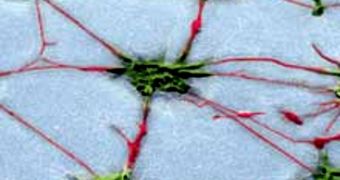According to researchers at the University of Dortmund, in Germany, neurotoxicity analysis could become in the very near future a lot faster and easier to perform, and will also return more accurate results. All of this will be made possible by a new microfluidic device (a lab-on-a-chip) that was developed at the University, under the supervision of microengineer Jonathan West. The device will basically allow researchers to conduct faster chemical analyses on the over 30,000 compounds that are not completely tested for toxicology at this point, Technology Review reports.
The innovation will also imply a reduction in the number of animal testings. Generally, the US Food and Drug Administration (FDA) requests animal testing for drugs because of the toxic compounds that sometimes make their way into the final version of the product. But better in-vitro testing could mean that the incidence of such cases would decrease dramatically, and therefore less animals would be subjected to potentially dangerous experiments. Still, analysts warn that the FDA is not about to let go of its requirement to have all products tested on living things any time soon.
In addition to this, there are also other reasons why better in-vitro chemical analysis techniques need to be set up. For example, in the European Union, many countries have already banned testing cosmetic products on animals, and others are expected to follow suit in the coming years. Also, The REACH initiative, also set up by the EU, will plan an increase in the number of chemical testings on all products, to periodically screen for any risks. “There are estimated to be around 30,000 chemicals that are not fully tested for their toxicological risk,” West says.
“Companies are looking for something like this so they can quickly find molecules that are least toxic before moving on to animal tests. You would save lots and lots of animals. This has to be the way to go. It's [also] very clever,” University of Cardiff cell biologist Kelly Berube says. She is also a scientific advisor to Safer Medicines Trust, a UK charity. The expert believes that the new microfluidic device will allow for several samples to be tested at the same time in just a few hours, as opposed to the ten hours it now takes to test a single compound.

 14 DAY TRIAL //
14 DAY TRIAL //